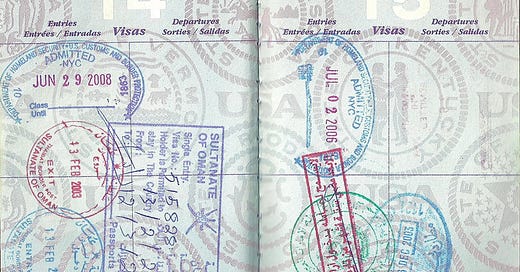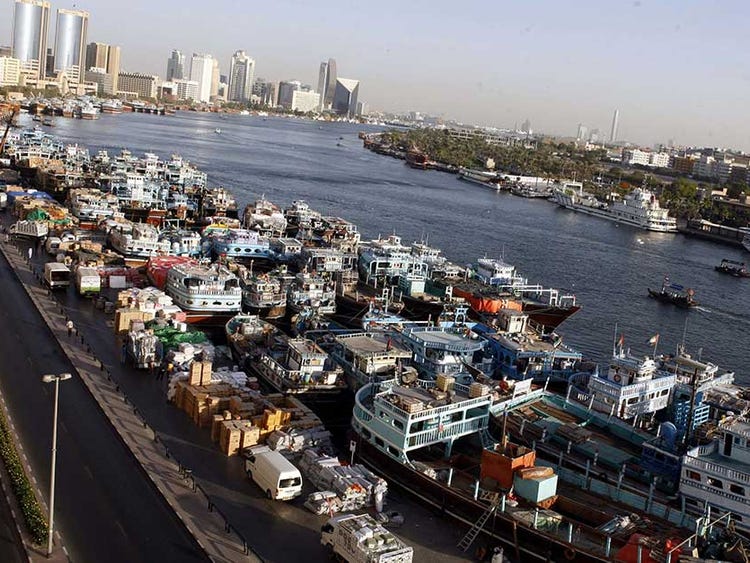Persian Free Traders, Russia Mafiosi, and Intel CPUs – a tale from Old Dubai
Once upon a time, working as a rogue academic, I lived under Sharia law in the Emirate of Sharjah in the United Arab Emirates. Our college wanted to upgrade our computer lab...
Once upon a time, I lived under Sharia law in the Emirate of Sharjah in the United Arab Emirates. Sharjah was dry — no alcohol, but we had Dubai as our neighbor. So to Dubai we would go — where at the time if you had the money and connections, it seemed anything would go. The most unholy and obscene not excepted.
My money — and my connections — were then as now as highly limited. (As well as my tastes for the truly unholy and obscene). But a colleague and I still managed our share of adventures, not all safe for work even when nominally work-related. So what was I doing in Sharjah?
I was then and am still now a rogue academic, and I was teaching at a college in Sharjah which no longer exists. It was subsequently bought by an American University which desired a presence (a feeder-campus) in the UAE, but then shortly afterwards changed its mind. Sharjah College, let’s call it, at which I had many outstanding students. We wanted to upgrade our computer lab.
My Iranian-American colleague, Anonymous, PhD, then a visiting Associate Professor of Electrical Engineering at Sharjah College and now a Professor of the same at a respectable American institution of higher education, had a lead — had some local (in a matter of speaking) contacts. So the two of us went to Bur Dubai to go computer shopping.
Dubai then as now had a Free Economic Zone (the UAE has several), also known as a Free Trade Zone or a Free Port. In theory or on paper, this allows for (list courtesy of Wikipedia):
100% foreign ownership of the enterprise
100% import and export tax exemptions
100% repatriation of capital and profits
Corporate tax exemptions for up to 50 years
No personal income taxes
UAE then as now had a largely expatriate population: then roughly 80% or so, and now roughly 89%. Persians (Eurasian people who identify as such), many of whom are also Farsi-speakers and Iranian citizens or passport holders, make up part of that expat population, then as now.
We went to an unimpressive office in Bur Dubai to meet with the Persian free-traders, who were primarily re-exporters of technology, to see what they could do for us: a humble college in need of some PC upgrades.
In a Dubai free-zone back then, once something was imported and sold, what happened next was nobody’s apparent business. Our new Persian friends were busy re-exporting various components of satellite technology to Iran, but they made time for us.
To date, I have no idea if Iran has any satellites, or even through a third-party has ever launched a satellite: nevertheless, satellite components of some sort were on the way. The USA had imposed a technology embargo on Iran, and this effectively created a wish-list along with opportunities to fulfill that wish-list. Entrepreneurship — and free markets, baby!
Back to our humble undertaking. We negotiated — in a mix of English and Farsi, my colleague handling the Farsi — the upgrade for our computer labs. The prices for our new computers were so good, it seemed a partial donation. Charity from an unexpected source. In particular, we got the Intel CPUs at fire sale prices.
My colleague asked: “How can you sell the CPUs to us so cheap?” Brief awkwardness as our Persian free-traders glanced at each other, and then switched back to Farsi. I would get the translation later.
“You don’t know?”, they asked my colleague, Anonymous, PhD. “We get them at great prices from the Russia mafia. Money-laundering. But it means we can sell them cheaper.” So not just gold or diamonds or artwork, but washing cash with CPUs. Well, we weren’t complaining and our new PCs did perform as promised.
I was living in Sharjah, UAE, when the second Gulf War broke out — when the neocons under George W. Bush and Dick Cheney got their invasion of Iraq. But that is another story. I am sure that everything is different now in Dubai.
At that time with Gulf War II underway, I could sit peacefully outside at a shisha café and watch the dhows — a few still with sails, but nearly all now powered by diesel — slowly travel on Dubai creek. The dhows used for trade and contraband in the Persian Gulf and the Indian ocean for centuries. (Image below: credit to Arshad Ali/Gulf News, from the story “Dhows to shift base from Dubai Creek” (Gulf News: 2014-12-09).
Watching the smaller, battered dhows slowly navigate the Dubai creek, I realized that no one — no governmental authority or intelligence agency — truly knew who was on those ships. Or, what was on those ships. Could be nuclear, biological, or much more likely, saffron and Nokia mobile phones — two cash commodities then in demand and all the sweeter upon sale for no import or export taxes.
I think this story has more than one moral, but I will allow the reader to draw their own.






Reading this gives me a strange sense of freedom. Explicit economic freedom, and social freedom as a consequence of corruption (the good kind of corruption I suppose).